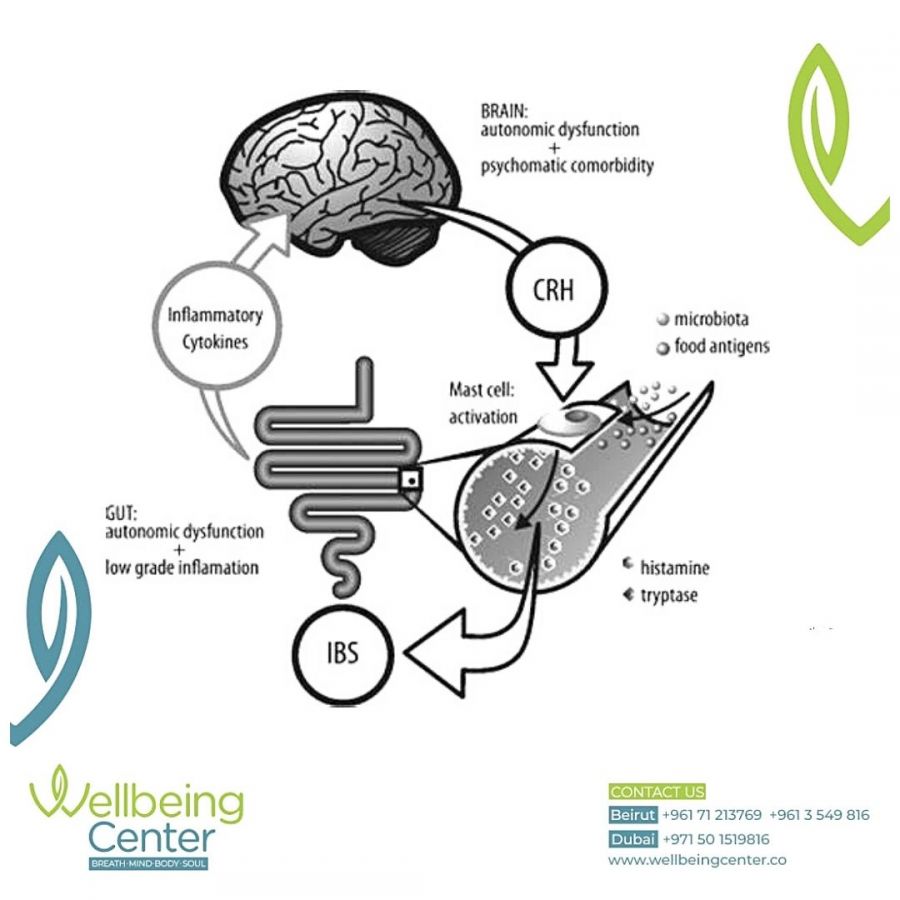Irritable bowel syndrome: gut-brain dysfunction

IBS is a gastrointestinal disorder of abdominal pain associated with either constipation or diarrhea. Common symptoms of IBS include:
- Abdominal pain and bloating
- Bloating
- Constipation or diarrhea
- Nausea
- Wind
Although IBS produces physical symptoms, several scientific studies have shown mental health conditions affect the severity of IBS. This implies the gut-brain connection is real and relevant to IBS. For example:
- IBS is more common in patients with pre-existing psychiatric illnesses such as depression or anxiety.
- Symptoms of IBS worsen during times of heightened stress or anxiety.
- IBS symptoms improve with psychological therapies such as hypnotherapy, cognitive-behavioral therapy (CBT) and mindfulness meditation.
Psychological and mind-body therapies that have been shown in clinical trials to improve symptoms of IBS include:
- Gut-directed hypnotherapy: following hypnotic induction, the client is guided through suggestive imagery to visualize their gut as a series of tubes with fast-flowing contents, improving symptoms of IBS.
- Mindfulness meditation: in this practice, the client is guided to bring their awareness to the present moment and accept physical sensations being experienced. This has been shown to improve symptoms of IBS.
- Cognitive-behavioral therapy (CBT): Negative beliefs and appraisals of IBS symptoms and unhelpful thought patterns are challenged, to reduce perceptions and physical symptoms of IBS.
Does any of the above symptoms resonate with you? Contact us at Wellbeing Center, and we will help you.
